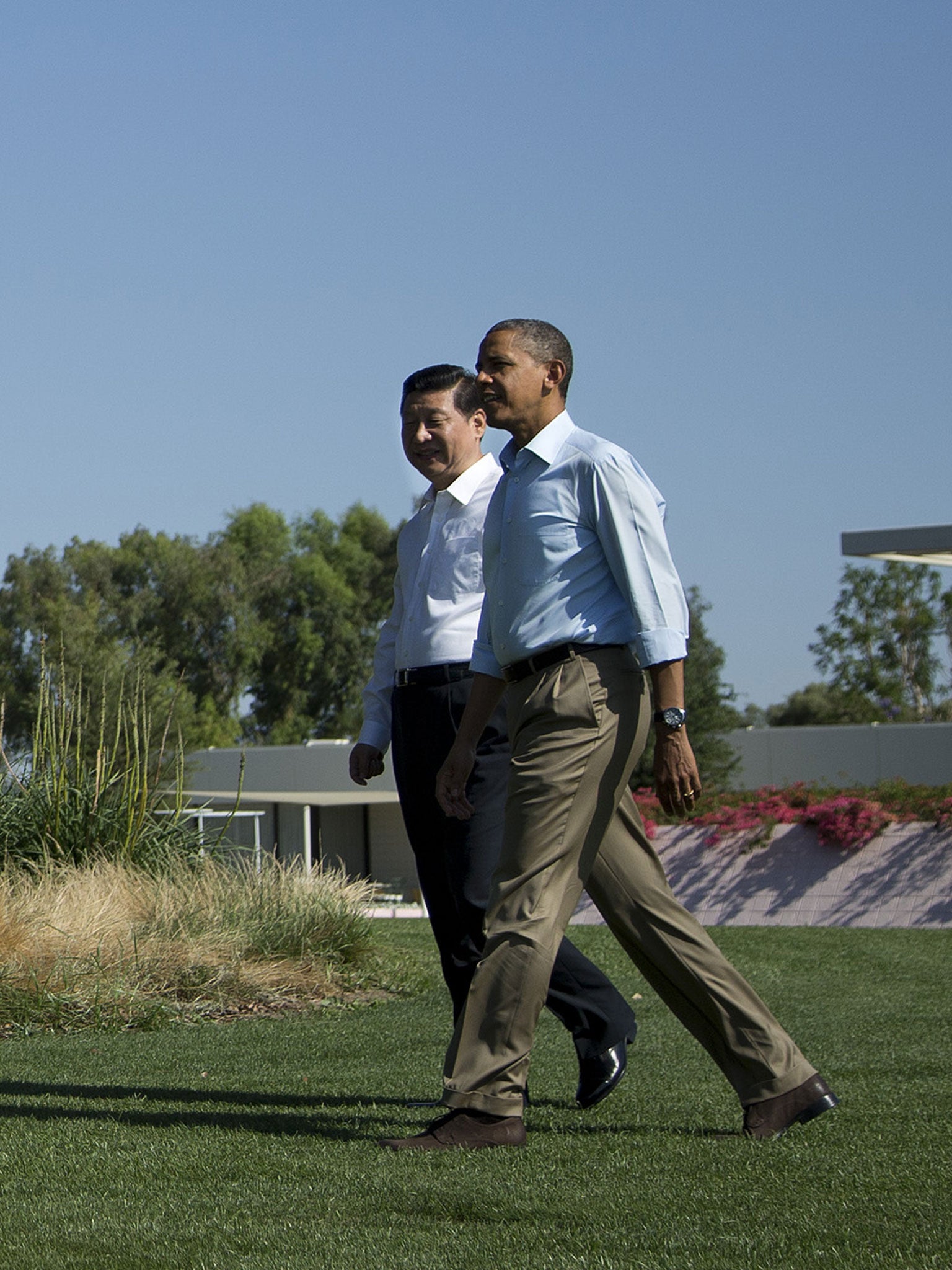'Positive' US-China summit stumbles over cyber security

A weekend summit between the US President Barack Obama and his Chinese counterpart Xi Jinping has concluded in California, with one US official describing the talks as “unique, positive and constructive”.
Tom Donilon, the US National Security Adviser, said the leaders had broadly agreed on topics including the denuclearisation of North Korea, and tackling climate change. The matter of cyber security, however, remained a stumbling block for US-China relations.
The two-day “shirtsleeves” summit at the Sunnylands private estate in Rancho Mirage near Palm Springs was billed as an opportunity for the leaders of the world’s two largest economies to build a personal rapport. It is the first time the men have met since Mr Xi took office in March.
As they strolled together in the 200-acre grounds in sweltering heat on Saturday, Mr Obama told reporters they had made “terrific” progress in their talks.
Observers noted that, unlike his reserved predecessor Hu Jintao, Mr Xi seemed at ease with the enforced informality of the event, at which neither leader nor their staff wore ties.
The Chinese were keen to portray the summit as a meeting of equals. For both sides, it was an opportunity to ease tensions as each expands its military and economic engagement in the Pacific.
At a press conference following the talks, Mr Donilon said the thorniest issue at hand was cyber security. In recent months China has been accused of digital thefts from a series of US businesses and government agencies.
In one instance Chinese hackers are thought to have accessed the confidential designs for more than two dozen US weapons systems.
On Saturday morning Mr Obama reportedly pressed his guest to rein in his country’s cyber espionage activities. According to Mr Donilon, the US President told Mr Xi that the alleged hacking was “inconsistent with the kind of relationship we want to have with China”. If it continued, he said, it would be “a very difficult problem in the economic relationship”.
The Chinese, however, said they too were victims of hacking. Last week The Guardian published details of a presidential directive in which Mr Obama allegedly ordered US intelligence officials to make a list of potential foreign targets for US cyber attacks.
Mr Xi’s senior foreign policy adviser Yang Jiechi told reporters, “Cyber security should not become the cause of mutual suspicion; rather it should be a new bright spot in our co-operation.”
There was less debate over the two countries’ approach to China’s troublesome neighbour, North Korea, which the leaders discussed on Friday evening over a dinner of lobster tamales, porterhouse steak and cherry pie prepared by the celebrity chef Bobby Flay.
According to Mr Donilon: “They agreed that North Korea has to denuclearise, that neither country will accept North Korea as a nuclear-armed state and that we would work together to deepen co-operation and dialogue to achieve denuclearisation.”
The White House released a statement following the summit saying the US and China had agreed to co-operate for the first time to reduce the “production and consumption” of hydrofluorocarbons, a greenhouse gas found in refrigerators and other appliances, which is believed to contribute to climate change.
Join our commenting forum
Join thought-provoking conversations, follow other Independent readers and see their replies
Comments
Bookmark popover
Removed from bookmarks